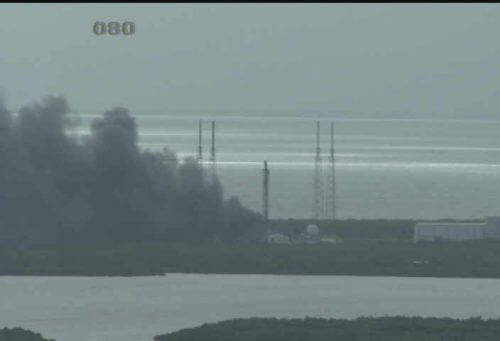In a post written by Zuckerberg from Kenya, he says, among other things: "While I am in Africa, I was disappointed to hear that the failure of the SpaceX launcher also caused the destruction of our satellite (so originally) that was supposed to provide connectivity to so many entrepreneurs and everyone else across the continent."

The reactions to the explosion of the Falcon 9 launcher carrying the Israeli satellite Amos 6 at Cape Canaveral from the involved bodies continue to flow.
The Space Communications Company, which is a stock exchange company, issued a brief statement: "To the best of the company's knowledge, during the ground refueling of the Amos 6 satellite launch vehicle, an explosion occurred in the launch vehicle causing a total loss of the satellite."
"The loss of the satellite has a substantial impact on the company, the company will add and report on the meanings arising from the loss." The company concluded its message to the media.

https://www.youtube.com/watch?v=_BgJEXQkjNQ
A video with documentation of the explosion filmed by a company that records the launches on US soil.
And finally came the response of Mark Zuckerberg, CEO of Facebook. As you remember, Facebook bought for 100 million dollars (a deal that unfortunately will not come to fruition) all the broadband internet capacity that was installed on the satellite to provide FREE BASIC internet (there is a debate about this because it excludes other large entities active on the internet, led by Google) to millions of residents in poor countries and communities.
From the response it appears that the company was not prepared with alternative capacity in other satellites and it put Yahava on the Akila solar glider.
In a post written by Zuckerberg on his personal Facebook page, he refers to the issue in the midst of a visit to Kenya, among other things to promote the project: "While I am in Africa, I was disappointed to hear that the failure of the SpaceX launcher also caused the destruction of our satellite (so originally) that was supposed to provide connectivity to so Many entrepreneurs and everyone else across the continent."
"Fortunately, we have developed other technologies such as Aquila that will allow humans to be connected like the satellite. We remain committed to our mission of connecting all humans to the Web, and we will continue to work until everyone has the opportunities this satellite was meant to provide.”
For the previous articles on the subject on the science website:

9 תגובות
Eli
Mistakes are inevitable. There is no limit to conspiracies?
Perhaps the American government is responsible for sabotaging and exploding the satellite in order to torpedo the acquisition of the satellite manufacturer by a Chinese company
You know, maybe he built a time machine? 🙂 I fixed it.
There is a mistake in the caption of the second picture
Facebook CEO Mark Zuckerberg at a restaurant in Nairobi, Kenya on September 1, 2017
As far as I know we are still in 2016
In the picture it is written "Purchase on September 1, 2017, MA"
And we are in 2016
The Israeli spacecraft to the moon that is supposed to be launched in 2017 is also in danger - because you can't trust the USA!